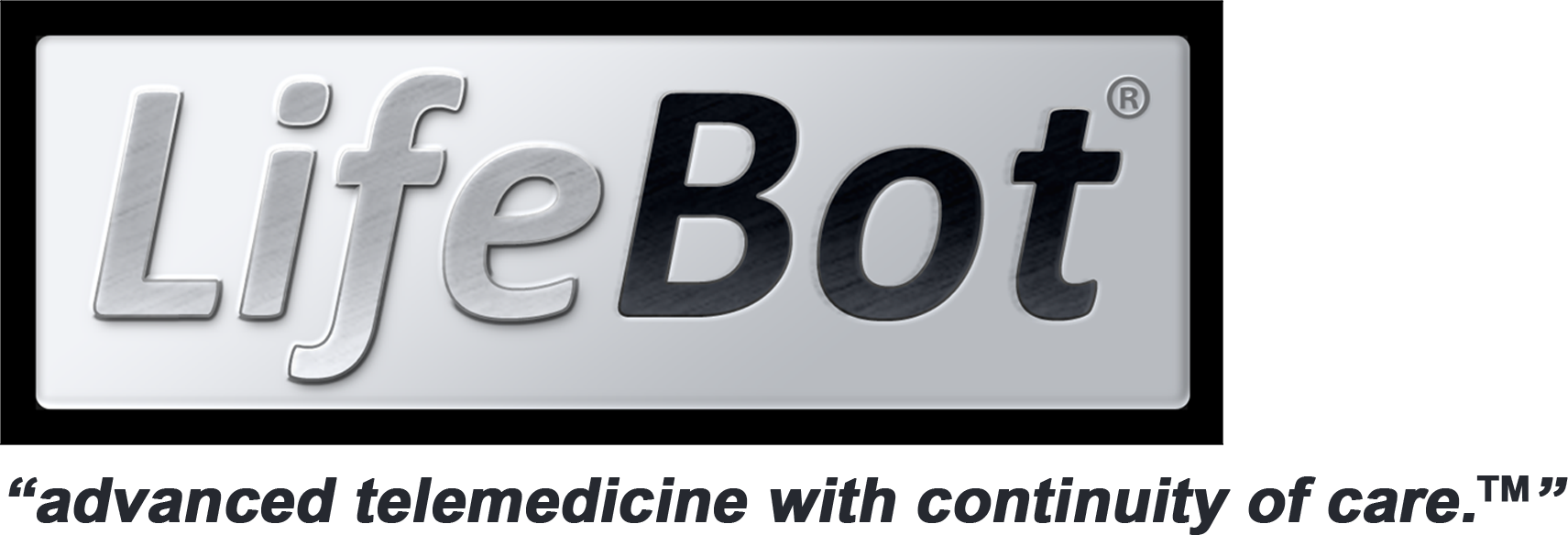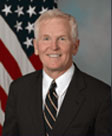
S. Ward Cassells, MD – A Tribute.
S. Ward Casscells (1952 – 2012) was a cardiologist who served with the Army in Iraq and later was Assistant Secretary of Defense for Health Affairs. Among other honors, he was the recipient of the Distinguished Public Service Medal, the Army’s Order of Military Medical Merit, and the General Maxwell Thurman Award. S. Ward Cassells, MD received the General Maxwell Thurman Award for his participation in the design of the DREAMS Digital Ambulance telemedicine system.
This page is posted as a tribute to Dr. Cassells and his diligence that caused the processes to which the development of DREAMS eventually occurred. “Tripp” is loved and missed by those who admired him and his unique achievements.
S. Ward Casscells, MD is the John E. Tyson Distinguished Professor of Medicine and Public Health, and Vice President for External Affairs and Public Policy at the University of Texas at Houston, and Senior Scholar at the Texas Heart Institute. His team contributes original data (including the regular Zogby/Casscells surveys) and insights on healthcare reform, pandemic readiness, and health diplomacy.
From April 2007 through April 2009, he served as the Assistant Secretary of Defense (Health Affairs) where he was credited with turning around a struggling $45B health and education system with 137,000 employees and 10 million patients in 900 clinics and hospitals in 100 countries. The system is now #1 in most surveys of patient satisfaction. For this work, Dr Casscells received the United States Department of Defence‘s highest civilian award, the Distinguished Public Service Medal, the Surgeon General’s Medallion from the Department of Health and Human Services, the Army’s Decoration for Distinguished Civilian Service, and the Order of Military Medical Merit.
Government Executive magazine said of him, “Many Defense leaders say they pay attention to the troops and don’t. Casscells does…he is a leader who walks the walk…making rounds at military hospitals… [continuing his policy] would serve the troops well.”
Dr. Casscells received his undergraduate education from Yale College and then studied at Harvard Medical School where he graduated magna cum laude. He trained in medicine and cardiology at Beth Israel, Brigham and Women’s Hospital, and Massachusetts General Hospitals, the Harvard School of Public Health, National Institutes of Health, and Scripps Research Institute. His publications have been in the areas of prevention of heart attack and stroke, information technology, medical ethics, influenza, disaster preparedness, nanotechnology, and healthcare management. He also speaks publicly about living with cancer.
An inventor and founder of several companies, including Volcano Corporation, he has served on numerous civic, corporate, and professional boards. He has been elected to a number of honorary societies. His work in mobile telemedicine and disaster response earned him the General Maxwell R. Thurman Award, the Department of Health and Human Service’s Best Public Health Practice Award, and the Memorial Hermann Health System’s Hero Award.
His recent book, “When It Mattered Most,” a tribute to medics killed in Iraq and Afghanistan, was termed by Newsweek’s Evan Thomas, “a noble work.” He, his wife, and three children are former Texans currently living in Washington, DC.
History
The Honorable S. Ward Casscells III is a former Assistant Secretary of Defense (Health Affairs). Sworn in on 16 April 2007,[1] Secretary Casscells administered the $45 billion Military Health System (MHS) and was principal advisor to the United States Secretary of Defense for health issues. The MHS comprises over 130,000 military and civilian doctors, nurses, medical educators, researchers, and healthcare providers worldwide providing our nation with an unequaled deployable medical and research capability.
Dr. Casscells was honored at a retirement dinner on 28 April 2009 with great fanfare. Speakers included members of Congress, foreign dignitaries, the Surgeons General of from all branches of the armed forces, and a number of video messages and tributes including messages from the media and Iraqi and Afghani military health leaders, with whom Casscells is credited as having built substantive diplomatic relationships.
Dr. Casscell’s currently serves as the John Edward Tyson Distinguished Professor of Medicine and Public Health, and Vice President for External Affairs and Public Policy, University of Texas Health Science Center at Houston as well as Senior Scholar at the Texas Heart Institute.
His friends refer to him by a number of nicknames, including “Doc,” “Ward,” and “Trip.”
Dr. Casscells, despite some health issues and relatively advanced age, enlisted in the Army Reserve and holds the rank of Colonel. He served on active duty in Iraq.
Dr. Casscells is credited with strengthening the MHS by an optimistic insistence on teamwork, innovation and accountability for quality of care (exemplified by his unannounced bedside rounds on 5 continents), by his energetic focus on transparent communication, and by advocating for the concept of medicine as a national resource to promote peace.
He led the recovery from the Walter Reed Army Medical Center shortfalls in 2007, making the system the best in prevention, trauma, safety, ethics, satisfaction, posttraumatic stress disorder (PTSD) research and care, diversity, and disaster response. With the Pentagon’s strategic partner the United States Department of Veterans Affairs (VA), he helped make the warrior disability evaluation system fairer and faster. To improve their electronic health records he championed interoperability with the VA and the United States Department of Health and Human Services (HHS) and held personnel and vendors accountable.
He built bridges to the VA, Centers for Disease Control and Prevention (CDC), U.S. Food and Drug Administration (FDA), National Institutes of Health (NIH), United States Agency for International Development (USAID), World Health Organization (WHO), Non-governmental organizations (NGO’s), and medical leaders in 120 countries. He boosted professional publications by 48%, fought for (and won) funds for green, patient-centered hospitals, PTSD research and care, humanitarian assistance, and stem cell research, and stewarded $84 billion in health care funds without protest, restoring trust with 9 million DoD beneficiaries, and millions in countries who increasingly see American troops as a force for good.
A leader known for fierce dedication to his patients, staff and students, Dr. Casscells previously served as the John Edward Tyson Distinguished Professor of Medicine (Cardiology) and Public Health at the University of Texas Health Science Center at Houston. As the Director of Clinical Research at the Texas Heart Institute, his clinical practice and research programs (with James T. Willerson, MD) focused on prevention of heart attack and stroke, and with Dr. Mohammad Madjid, was the first to identify influenza as a trigger of heart attack. Dr. Casscells was a founder of the Center for Advanced Biomedical Imaging Research (CABIR) at U.T/M.D. Anderson Cancer Center. With Dr. Rick Smalley he founded the Alliance for NanoHealth to promote safe nanobiotechnology. After 9/11 he led forums for thoughtful bio/chem/nuclear defense. As a United States Army reservist, he developed the Army’s pandemic plan, then led US efforts to rebuild Iraq’s health sector, deploying to Iraq despite undergoing chemotherapy. A leader in disaster medicine, and pandemic preparedness, Dr. Casscells has been a first responder and medical coordinator during Hurricane Katrina, the 2004 Indian Ocean tsunami, the Peru Earthquakes, and other disaster situations. In 2002 he was named “Hero of the Flood” by the Memorial Hermann Hospital for his work on the front lines of Tropical Storm Allison.
His many awards include the Army Meritorious Service Award, Joint Commendation Award, The General Maxwell Thurman Award, the Distinguished Public Service Medal from the Uniformed Services University, the Public Health Service Surgeon General’s Medallion and an Emmy. He also recently released a book entitled “When It Mattered Most” dedicated to the fallen medical personnel in Iraq and Afghanistan.
In addition to his service on educational, scientific, and charitable boards such as the Prostate Cancer Foundation, Dr. Casscells was a director of the Volcano Corporation, Lifeline Systems (now Philips) and Spectracell, Inc, and an advisor to GE Healthcare, Roche, Pfizer, Lilly, Claritas, RediClincs, and Glaxo. From 1985 to 1991, he served in the Cardiology Branch at the National Institutes of Health, followed by a sabbatical year at the Scripps Research Institute of Medicine and Science in La Jolla, California, working under Nobel Laureate Roger Guillemin, M.D., Ph.D. Dr. Casscells joined the University of Texas Health Science Center at Houston in 1992. From 1994 to 2000 he served as the Levy Professor and Chief of Cardiology at UT-Houston Medical School and Memorial Hermann Hospital.
A native of Wilmington, DE, he received the B.S. in Biology (cum laude) from Yale University in 1974, and the M.D. (magna cum laude) from Harvard Medical School in 1979. His residency in medicine was conducted at Beth Israel Deaconess Medical Center Hospital and Harvard Community Health Plan, with a cardiology fellowship at Massachusetts General Hospital, and a Kaiser Fellowship in clinical epidemiology at the Harvard School of Public Health. Dr. Casscells is married with three children.
References
- ^ From the Official biography of the Health Affairs website (http://www.health.mil/bioDetail.aspx?ID=1)
Articles
- “Casting the ‘Net for a Replacement”, by Bob Brewin, NextGov. February 19, 2009.
- “Soft Power with Guns”, by Peter Buxbaum, International Relations and Security Network- Security Watch. January 16, 2009.
- “Culture War”, by Bob Brewin. Government Executive Magazine. January 12, 2009.
- “Health Chief Discusses AHLTA, Other Issues”, by Jerry Harben – Mercury News. January 2009.
- “Health Care Champion: An Interview with S. Ward Casscells, M.D. Assistant Secretary of Defense for Health Affairs”, by Chaz Vossburg – Military Medical Technology. December 2008.
- “Healing Environments for America’s Heroes”, by Michelle Ossmann, Clay Boenecke, Barbara Dellinger. Healthcare Design Magazine. November 2008.
- “Walking the Deck”, by Bob Brewin. Government Executive Magazine. September 2008.
- “Engine of Innovation: US Healthcare from Military to Private Sector”, by Divya Sood. Future Healthcare Magazine. 3Q 2008.
- “Agencies Dispatch Health Care Workers; Mission Responds To PTSD” Audrey Hudson. The Washington Times. June 5, 2008.
- “A Lion in Autumn: How a middle-aged doctor wound up on the battlefield in Iraq”, by Evan Thomas. Newsweek. November 19, 2007.
- “Delaware Native Comes To Military Career Late But Ascends To Top”, By Nicole Gaudiano. Gannett News Service. March 28, 2007.
- “Swiftly Confirm: Wartime Pentagon Needs A Top Health Official, and Houston’s Ward Casscells Is Right Man for the Job” (Editorial). Houston Chronicle. March 27, 2007.
- “Delaware Native On Call For Veterans Health Crisis” By Nicole Gaudiano. Gannett News Service
- “Bush To Nominate Houston Doctor To Defense Health Affairs Post” By Todd Ackerman. The Houston Chronicle. February 24, 2007.
- “Walter Reed Stories Factual But Unfair, Medical Chief Says” Steve Vogel. Washington Post. February 23, 2007.
- “U.S. Aims To Grow Ears, Skin For War Wounds” Kristin Roberts. Reuters. April 18, 2008.
- “Departments Of Defense And Veterans Affairs Working Together” The Montgomery Advertiser. December 27, 2007.
- “State Gears Up To Screen Combat Stress” Philip Dine. The Pantagraph. December 26, 2007.
- “Faux Candidate Ranks High In Poll” Ralph Z. Hallow. The Washington Times. September 26, 2007.
- “Casscells Returns from Tour of Duty”, Heart Wire. February 1, 2007.
- “Mourning a doctor who improved Iraq” by Col. S. Ward Casscells, Stars and Stripes Mideast edition. January 27, 2007.
- “Pentagon Official Praises Staff For Hospital’s Recovery” Wire Reports. Fort Worth Star-Telegram
- “A Parable to Help Make Sense of Iraq” Col. S. Ward Casscells. Houston Chronicle. November 26, 2006.
- “Iraq: The Old Chevy” Col. S. Ward Casscells. Stars and Stripes. November 7, 2006.
- “World Renowned Doctor Trades Lab Coat for Uniform”, by Elaine Wilson. Army News Service. February 8, 2006.
8 City Boulevard, Suite 203 Nashville, TN 37209 USA
toll-free telephone : 877-466-1422 direct telephone: 623-738-1422 fax telephone: 928-436-8930
e-mail: info@lifebot-us.dream.press
online form: Contact Us
